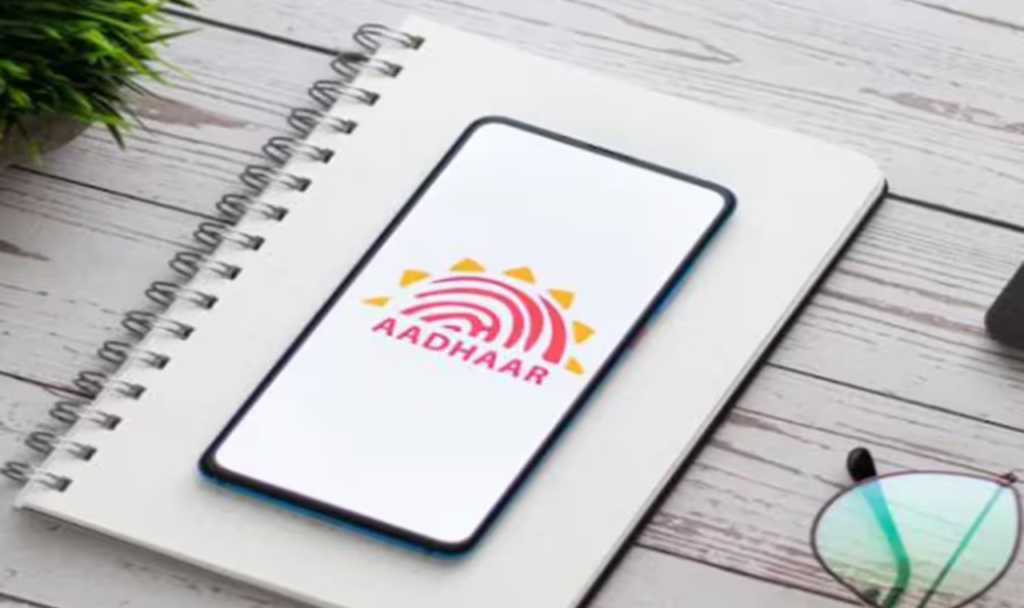In a significant step towards making digital identity verification more secure and user-friendly, the Government of India has launched a new Aadhaar mobile application that eliminates the need for carrying physical Aadhaar cards or photocopies. The app, which leverages advanced facial recognition technology and QR code-based authentication, is set to transform how citizens verify their identity across various services.
Union Minister for Electronics and Information Technology, Ashwini Vaishnaw, unveiled the app in New Delhi earlier this week, highlighting its user-first features and robust security mechanisms.
A Digital Shift in Identity Verification
With increasing concerns over privacy and misuse of identity data, the government has positioned the new Aadhaar app as a secure and convenient alternative to physical documents. The application allows users to authenticate their identity using Face ID a feature that enables Aadhaar-linked facial recognition directly via smartphone.
“Now, there is no need to carry physical Aadhaar cards or even photocopies. Just scan the Aadhaar QR code or authenticate using Face ID that’s all you need,” Vaishnaw said during the launch event.
The new initiative supports the broader digital India mission and aims to reduce fraud, enhance data privacy, and streamline verification processes.
Key Features of the New Aadhaar App
1. Facial Recognition (Face ID) Authentication
One of the app’s standout features is Face ID-based authentication. Users can verify their identity by simply looking into their phone’s front camera. This feature ensures that identity verification is both seamless and secure, eliminating the possibility of using fake or stolen Aadhaar credentials.
The facial data is matched with UIDAI’s records in real time, adding an extra layer of security.
2. QR Code-Based Verification
Much like Unified Payments Interface (UPI) transactions, the Aadhaar app introduces QR code scanning for identity verification. Users or service providers can generate and scan Aadhaar QR codes to verify identity instantly. This is particularly useful at locations like hotels, airports, and government offices where swift verification is needed.
3. Controlled Data Sharing
With data privacy at the forefront, the app offers granular controls that allow users to share only the necessary details for verification. Instead of submitting a full Aadhaar copy, users can now share selected data like name and address, minimizing the risk of data misuse.
This feature aligns with the principles of data minimization as laid out in India’s Digital Personal Data Protection Act, 2023.
4. Offline Functionality
The app also supports offline Aadhaar verification using encrypted QR codes. This feature is particularly helpful in remote areas with limited internet access.

Use Cases Across Sectors
The government envisions the app being used for identity verification across sectors such as banking, telecom, travel, and e-commerce. From checking into hotels to booking train tickets or verifying KYC details at a bank, the app can streamline and secure these processes.
It will also benefit government agencies and welfare schemes that require Aadhaar-based identification.
Privacy and Security First
To address privacy concerns, all biometric and personal data is handled in compliance with UIDAI protocols. No data is stored on the device after authentication, and all transactions are encrypted. The app has undergone rigorous testing and is currently available in beta for Android and iOS devices.
The Unique Identification Authority of India (UIDAI), which oversees the Aadhaar ecosystem, has assured users that the app meets all privacy guidelines and encourages citizens to adopt digital methods for safer interactions.
How to Access the App
While the app is currently in its beta phase, it will be available for public download via official government platforms:
- UIDAI Official Website
- Digital India Portal
- Ministry of Electronics and Information Technology (MeitY)
Upon full rollout, users will be able to download it from the Google Play Store and Apple App Store. The government has also stated that extensive public awareness campaigns will be conducted to ensure adoption and understanding of the app’s benefits.
Next Steps and Future Updates
Officials at UIDAI have indicated that more features, including Aadhaar-linked eSign and integration with DigiLocker, may be introduced in future updates. These enhancements will further solidify the Aadhaar app as a one-stop digital identity platform.
The government also aims to collaborate with state departments and private service providers to integrate this new Aadhaar authentication method into their existing systems.
Conclusion
With the launch of this app, India takes another leap in digital governance. The emphasis on privacy, convenience, and real-time authentication makes it a timely innovation in an era where digital identity is central to everyday transactions. As the nation continues to adopt and adapt to digital-first solutions, the new Aadhaar app may well redefine how identity is viewed and verified in India.
For more details, visit the UIDAI Aadhaar Services page.

Pankaj Kumar is a journalist at Chandigarh X, covering admit cards, recruitment, and government schemes. His articles provide readers with detailed insights into application processes, eligibility, and exam updates.
Outside of work, Pankaj enjoys traveling, fitness, and cricket, often participating in local matches on weekends.



